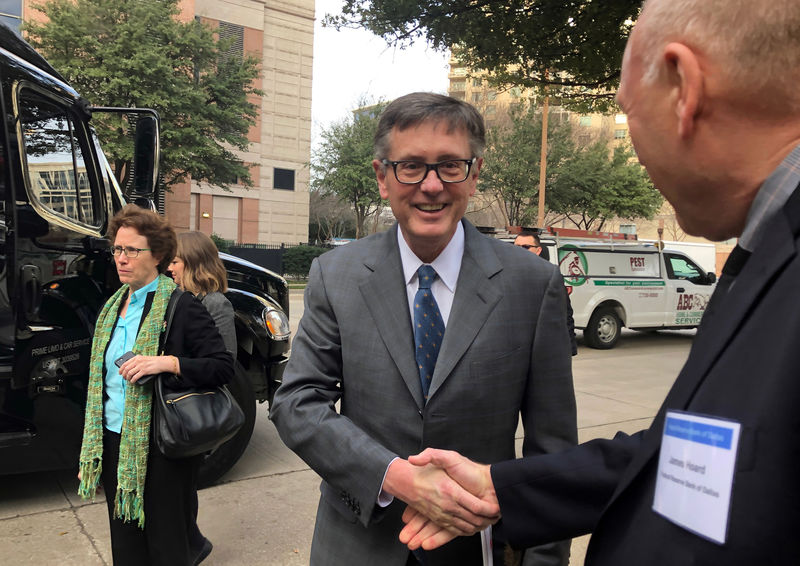WASHINGTON (Reuters) - Federal Reserve Vice Chairman Richard Clarida said the Fed expects the U.S. economic expansion to continue but is prepared to reduce interest rates if trade and other uncertainties put that outlook at risk.
"The economy's baseline outlook is good -- sustained growth, a strong labor market and inflation near our objective," Clarida said in an interview on Bloomberg Television.
But at the Fed's meeting this week "there was broad agreement around the table that the case for providing more accommodation has increased ... We have the tools necessary to sustain expansion, a strong labor market and stable prices, and as appropriate we will deploy those tools to achieve those goals."
The Fed left its target policy rate unchanged at a range of 2.25 to 2.5 percent at its latest two-day meeting, which concluded Wednesday.
New economic projections released at the conclusion of the session showed individual policymakers were prepared to cut perhaps half a percentage point from that by year's end.
One official, St. Louis Fed President James Bullard, dissented from the decision to leave interest rates unchanged. He said he felt rates should have been cut now as "insurance" against current weak inflation falling any further from the Fed's 2 percent target.
The median outlook for inflation among policymakers is currently 1.5 percent for 2019.
Clarida on Friday nevertheless characterized inflation as "near our objective," a possible sign of ongoing debate about whether a rate reduction is needed, and if so when.
Updated reports on jobs and inflation will figure into the that discussion as officials prepare for their July meeting six weeks from now.
The debate over global trade may also evolve. Clarida said recent evidence of slowing global growth, as well as "uncertainty" about the direction of trade negotiations between the U.S. and China, "is weighing on sentiment. So we are monitoring that closely and we will act as appropriate to sustain expansion."

After a series of rate increases since 2015, "we have the flexibility we need," Clarida said. "We are far away from the zero bound so we have some room along those lines if we need to."